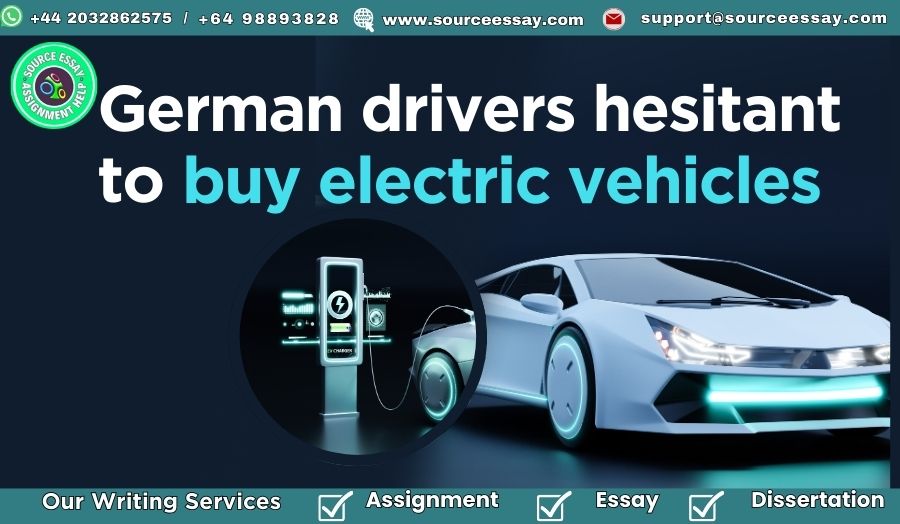Electric car registrations
In recent years, Germany has seen a rise in the number of electric vehicles on its roads. When it comes to battery electric car registrations, the growth rate is quite rapid. If we take the data from 2023, it shows that 39.1% of registrations are for electric vehicles, which is expected to reach a total of 1.4 million electric vehicles.
Sluggish success required number
Contrast to this data, we have also seen that hybrid vehicles are getting popular among the citizens of Germany, reaching almost 2.9 million. This can be indeed significant, as the ambitious target of the German government is around 15 million, and the sluggish report is not meeting the required number.
Electric vehicle adoption
Greenpeace also discusses the current phase of electric vehicle adoption, which is quite slower than the government’s goal of achieving almost 15 million fully electric cars functioning on the road by 2013. To reach that number, electric vehicle adoption would need to increase by almost 2 million every year for the next 6 years.
Dominate Germany’s market
Closely analyze the present German society. We have seen that combustion engine vehicles, which are considered traditional based on digital or petrol cars, dominate Germany’s market and even the roads. If you take the data of registered vehicles, there are 44.4 million still functioning on the road.
However, we have seen some hope of light in the declining number of diesel vehicles, which has dropped by 2%. When it comes to petrol vehicles, it has also dropped by 1.1%. However, the majority still consists of traditional combustion engines based on visual and petrol.
The carbon footprint
We have seen the dominance of fossil fuel-powered cars significantly challenging almost everything in Germany. Let’s take the example of ENVIRONMENTAL goals, specifically focusing on greenhouse gas emissions and their reduction, or the carbon footprint. Unfortunately, this reduction is not possible due to the widespread utilization of fuel-based cars.
Subsidies for electric vehicles.
Environmental groups such as Greenpeace are talking about the situation in the German government. Their criticism is that the government is not putting enough effort into providing subsidies for electric vehicles. They highlight how the government discontinued subsidies on green cars, although subsidies for fully intensive vehicles such as SUVs are still quite popular in Germany.
We have seen the data that SUVs have the fastest growing segment in the German market, which is contrary to Germany’s notion of reducing carbon emissions. These SUVs are counterproductive to that idea.
A wake-up call,
We have found a glitch in the government’s policy underscored by Germany’s Federal Motor Transport Authority. We will need to provide a wake-up call, which is also supported by Greenpeace, highlighting how the government’s policies are inconsistent and how they are going to support these climate dimension vehicles. The German people will never fully switch to green cars or these electric vehicles.
Necessary to encourage
The date also allows us to compare 2023 with previous years and analyze the reduction of combustion-based cars due to government subsidies for electric vehicles worldwide. This emphasis highlights why subsidies are necessary to encourage people to transition towards electric vehicles(Petzinger, 2022)
Incentives provided by the government
The analysts believe that incentives provided by the government in the form of subsidies will increase the adoption of electric vehicles. However, the government is not effectively promoting this appeal, which further highlights the situation in Germany.
As we are aware, Germany’s car culture is quite ingrained. If the government provides a little bit of subsidies, it will enhance the situation. We have seen that Germany has an attachment to traditional or gas-powered vehicles, especially SUVs, which also contribute to the unsustainable path and greenhouse gas emissions.
Policies related to sustainable development
Whenever we talk about environmental policies, Germany always shines as a leader when it comes to renewable energy initiatives or policies related to sustainable development. However, when we analyze the economies of countries such as the United States or China, they are transitioning towards electric transportation more compared to Germany.
Where they lag behind, we cannot deny the fact that Germany is putting positive efforts toward recycling and renewable energy sources. Although the sluggish adoption of electric vehicles remains a challenge for Germany.
Acronym R.I.P.
Understand that when German consumers are elected, when it comes to embracing electric vehicles, there are majorly 3 reasons highlighted by experts, by the acronym R.I.P., which stands for range, infrastructure, and price. When we look at the data carefully, we can see that.
When we started to know that consumers do not have plenty of options available when it comes to electric vehicles, on the other hand, there are countless infrastructure issues in Germany, and the price range is way beyond their budget.
Electric Cars in Germany Germany Electric cars students help Germany
REFERENCE
Petzinger, J. (2022, July 20). Performance anxiety is putting car-crazy Germans off buying electric vehicles. Quartz. https://qz.com/953748/why-germans-dont-want-electric-cars

